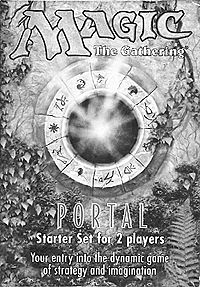Not Just for Geeks
Gaming at Worldcon 97
By Allen Varney, Fri., Sept. 19, 1997
 Wander the halls at the World Science Fiction Convention, and you'll spot every species of the genus Science Fiction Fan: literary fans, art buyers, media groupies, fanzine publishers, anime-heads, filkers (fannish folk-song singers), space activists, Big Name Pro camp-followers, wannabe writers (lots of wannabe writers)....
Wander the halls at the World Science Fiction Convention, and you'll spot every species of the genus Science Fiction Fan: literary fans, art buyers, media groupies, fanzine publishers, anime-heads, filkers (fannish folk-song singers), space activists, Big Name Pro camp-followers, wannabe writers (lots of wannabe writers)....
And my own breed, gamers. I almost wrote "gaming geeks," because we players of roleplaying, card, and board games do display striking nerditude. Nearsighted, fidgety, shy, alternately mumbling and strident.... An episode of X-Files this season featured a rotund, bespectacled loser nasally boasting, "I haven't played Dungeons & Dragons all these years without learning about heroism." That agonizing pang of recognition!
But most gamers at LoneStarCon 2 didn't fit the geek image. I know: I organized and ran the gaming track, including a dozen panels and a 24-hour Open Gaming area. The folks I saw looked like science fiction fans, a phenotype generally older, better-dressed, and better-groomed than gamers. Maybe that's because Worldcon traditionally doesn't draw gamers; instead, they congregate by the tens of thousands at the summer GenCon game fair in Milwaukee.
Keeping in mind the low gamer/Worldcon overlap, my panels emphasized gaming topics of interest to non-gamer SF fans. For instance, the SF book racks are filling with novels based on computer and roleplaying games (and even one novel, my own Cast of Fate, based on a dice game -- the novel's pages were drilled in one corner to hold a die!). So "Game Novels: The New Midlist" discussed how the mid-level range of book publishing, between low-grade series potboilers and big bestsellers, has been supplanted by these new game-based, licensed books. Another panel, featuring former game designers-turned-novelists (including Round Rock writer Aaron Allston), bore the contentious title "I Used to Write Games, but I Got Better."
A Q&A session with Austin's leading game designer, Steve Jackson, and "Paper Roleplaying Games vs. Computer Roleplaying Games" drew the biggest audiences. But the liveliest panel was "Tumbling Dice: The State of the Gaming Industry," a two-hour year-in-review gab session inspired by a long-running panel at Austin's annual ArmadilloCon SF convention.
It's been a tumultuous year in the gaming industry. Wizards of the Coast, publisher of the mega-hit card game Magic: The Gathering, bought out TSR, publisher of Dungeons & Dragons. Maybe this doesn't set your heart throbbing, but to gamers it was a stunner, like Apple buying IBM.
You might have seen commercials for Magic on MTV or ESPN. In the game you're a wizard, and you cast spells (play cards) to drive your opponent from 20 life points down to zero. The gimmick is, you each have your own deck of 60+ cards which you build from a "universe" of thousands of different cards. Some Magic cards are common, some are rare, and they all interact in many interesting ways; you can design your deck around intricate card combinations. Buy "booster packs" to get more cards, or trade them with friends. It's utterly addictive.
Wizards has sold two billion Magic cards since its 1993 release, and now it's the 800-pound gorilla of the gaming industry. There aren't many other gorillas left. In 1994 Magic became a huge fad in the gaming field, in 1995 a bunch of imitators (including TSR) jumped in, and in 1996 the market crashed, taking lots of publishers and game stores with it. Now the field is recovering -- but TSR didn't.
We had other news to talk about, too: the controversy surrounding White Wolf's Charnel Houses of Europe, a roleplaying supplement about the Nazi Holocaust (done with much more taste than you're thinking); an update on the anti-D&D nuts (in complete disarray, finally!); and the imminent collapse of the computer gaming industry (each year brings 6,000 new games, of which 20 make money).
So lots of high-energy chatter filled the "State of the Industry" panel. But you know what pleased me most? At its closing, each panelist named a new game he liked -- and, amid all the turmoil, it turned out to be a year of really good games. Blue Planet (Biohazard Games, $27.95), a "hard" (scientifically accurate) science fiction roleplaying game; Delta Green (Pagan Publishing, $27.95), a tremendous roleplaying campaign that blends X-Files-style government paranoia with H. P. Lovecraft's Cthulhu Mythos; Groo (Archangel, $15.95), a charming card game based on Sergio Aragones' bumbling comic-book barbarian; and, above all, Settlers of Catan (Mayfair, $35), one of the best board games ever. Anyone, not just gamers, can enjoy many of these games.
A lot of genuinely interesting people spoke on those Worldcon gaming panels. Whatever the public image of gaming as a pursuit of geekhood, game designers are a varied, articulate, and widely learned bunch.
And if the gamers look weird, so what? Gaming gives weird people a refuge, much as science fiction used to back in the days when Worldcons drew 500 people instead of 5,000. Science fiction fandom traditionally sheltered society's intelligent but alienated loners. The subculture gave them an unthreatening social venue and a sense of belonging -- training-wheels for real life. Now that science fiction has gained respect in mainstream society, the field attracts too many normal people for loners to feel comfortable. A lot of them have gone into gaming instead.
And that is good. I firmly believe that harboring geeks is worthy work.
Game designer Allen Varney moved here in 1984 to work for Steve Jackson Games, went freelance in 1986, and has worked with over a dozen companies on board, roleplaying, and computer games.






